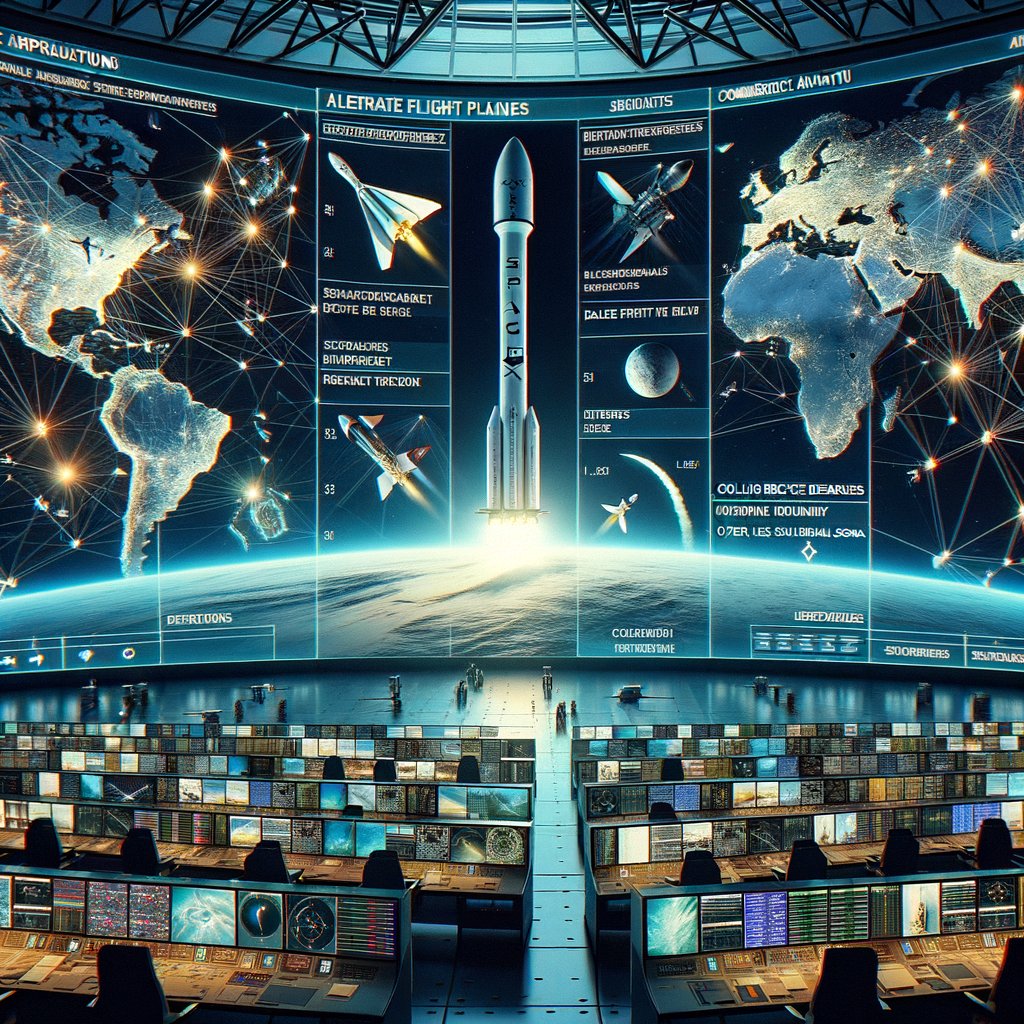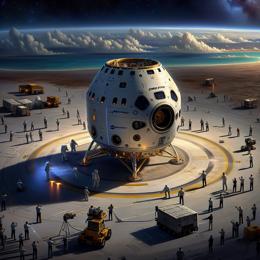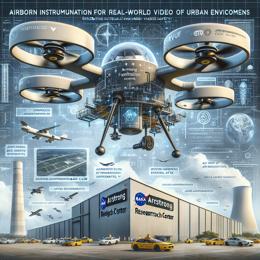Image created by AI
SpaceX Rocket Launches Impact Qantas Flights Between Australia and South Africa
Recent weeks have seen disruption in air travel between Australia and South Africa, as Qantas Airways was compelled to postpone several flights. This decision came after the US government issued warnings about potential hazards from SpaceX rocket debris entering the Earth’s atmosphere over the Southern Indian Ocean.
Ben Holland, head of Qantas’s operations center, explained that the last-minute changes in SpaceX’s rocket launch schedules have necessitated these delays, sometimes extending up to six hours, affecting routes primarily between Johannesburg and Sydney. This situation underscores the growing intersection between aerospace developments and commercial aviation routes.
SpaceX’s ambitious agenda involves its massive Starship rocket, expected to drastically increase the rate of launches. Currently in its test phase, Starship had its seventh test flight scheduled for this week, although it faced multiple delays due to weather conditions. This test includes deploying dummy satellites, mirroring the size and weight of future Starlink satellites, hinting at a larger scale of operations aimed at enhancing global satellite connectivity.
Complicating the busy schedule, the US Federal Aviation Administration (FAA) reported authorizing a record 148 commercial space operations last fiscal year, with projections suggesting this could more than double by 2028. The FAA expressed plans in November to update its launch and reentry licensing rules to better accommodate this expected increase.
The implications for commercial flights, specifically those traversing near the rocket trajectories over oceans, are significant. Flights cannot operate safely in areas where rocket debris might re-enter the atmosphere, leading airlines like Qantas to reroute or delay flights as needed based on governmental advisories.
In response to the evolving dynamics between space launches and aviation safety, Holland mentioned ongoing discussions with SpaceX. The aim is to refine the understanding and possibly the prediction of rocket debris paths to minimize future disruptions to passengers.
SpaceX, a major player led by Elon Musk, envisions up to 400 Starship launches over the next four years as part of its broader strategy to revolutionize space travel and satellite deployment. However, the experimental nature of these ventures suggests that navigating regulatory and logistical challenges will be crucial for ensuring the safety of both space and air travel.
The increasing frequency of commercial space launches signifies a new era where aerospace technology directly impacts various sectors, including commercial aviation. This situation demands enhanced collaboration between aerospace companies, regulators, and airlines to safeguard the overlapping interests of safe space explorations and uninterrupted air travel.










